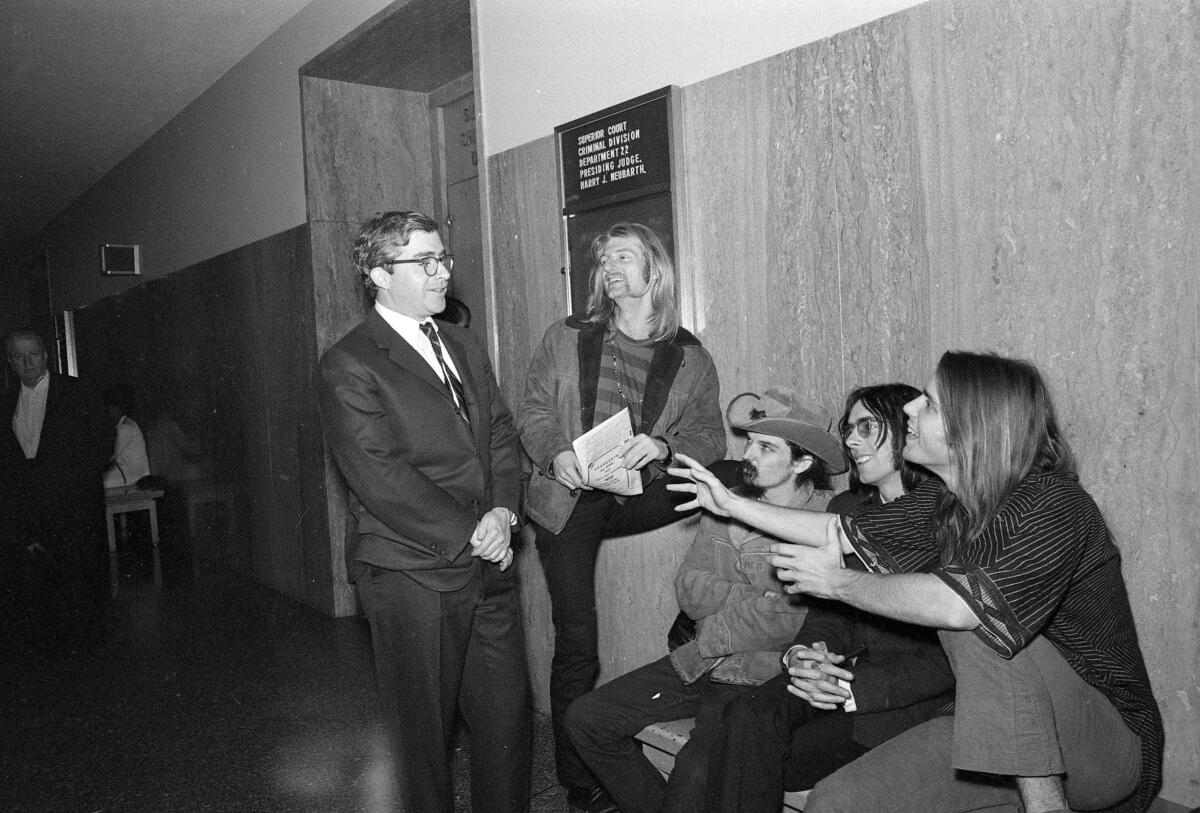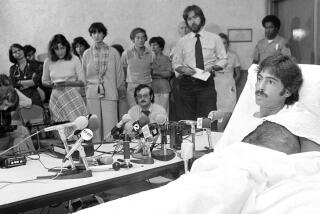Brian Rohan, the counterculture ‘dope lawyer’ to the stars, dies

- Share via
Brian Rohan, who was known as San Francisco’s “dope lawyer” for 1960s counterculture clients like the Grateful Dead and Ken Kesey, has died, according to a newspaper report Sunday. He was 84.
Rohan’s daughter, Kathleen Jolson, told the San Francisco Chronicle that her father died March 23 at his home in the Bay Area city of Larkspur after a six-year battle with cancer.
After defending Kesey, author of “One Flew Over the Cuckoo’s Nest,” for marijuana possession in 1965, Rohan became the go-to attorney for charges involving illegal drugs, the Chronicle said.
Rohan co-founded the Haight Ashbury Legal Organization and the group recruited clients in part by setting up a table outside the Grateful Dead house at 710 Ashbury St.
Thanks to his association with the Grateful Dead, Rohan also became a music lawyer. In 1966, he helped the band negotiate its first contract with Warner Bros. He also represented Janis Joplin, Santana and Jefferson Airplane.
His non-musician clients included Beat writer Neal Cassady — the inspiration for the character Dean Moriarty in “On the Road” — and members of the Merry Pranksters, the communal travelers chronicled in Tom Wolfe’s 1968 book “The Electric Kool-Aid Acid Test.”
“Brian Rohan, though he is probably one of the most successful of the dope lawyers, hasn’t worn a suit in a year, his usual attire being faded corduroys and a T shirt,” the San Francisco Examiner wrote in a 1970 story.
“He wears dark glasses at all times. ‘I can’t look people in the eye when I ask for all that money — I get it, and it’s insane.’”
Rohan spent his entire life on the West Coast, growing up in Washington before attending the University of Oregon and then University of California Hastings College of Law.
Rohan is survived by Jolson and three sons — Brian Jr., Chris and Michael.
Jolson told the Chronicle he died in his sleep.
“He worked until the last day of his life, clutching his phone in one hand and his iPad in the other,” she said. “He fought for his clients, he fought for his friends, and he fought for what he thought was right.”
More to Read
Start your day right
Sign up for Essential California for the L.A. Times biggest news, features and recommendations in your inbox six days a week.
You may occasionally receive promotional content from the Los Angeles Times.







